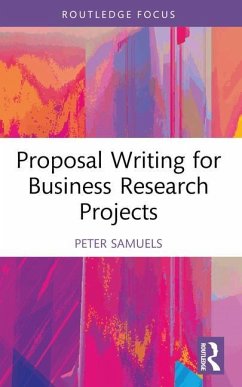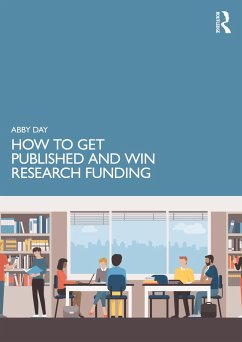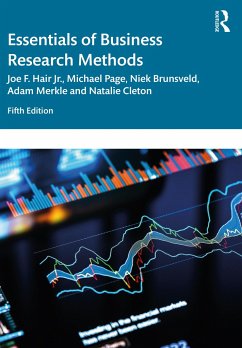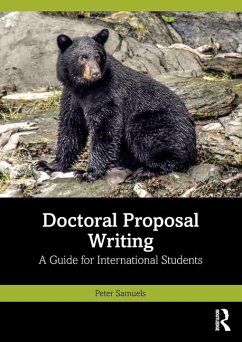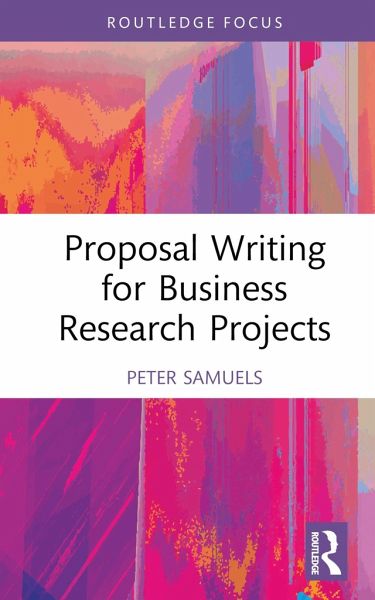
Proposal Writing for Business Research Projects
Versandkostenfrei!
Versandfertig in 6-10 Tagen
51,99 €
inkl. MwSt.
Weitere Ausgaben:

PAYBACK Punkte
26 °P sammeln!
This book helps students with the initial phases of their business research project, offering a clear step-by-step approach from defining aims and research questions through to conducting literature reviews and writing a methodology.Features to aid learning include chapter objectives, plentiful real-life examples to demonstrate good practice, exercises to apply the concepts and further reading for proactive investigation.A self-contained guide to every stage of writing an effective business research proposal, this text should be recommended reading for all advanced undergraduate and postgradua...
This book helps students with the initial phases of their business research project, offering a clear step-by-step approach from defining aims and research questions through to conducting literature reviews and writing a methodology.
Features to aid learning include chapter objectives, plentiful real-life examples to demonstrate good practice, exercises to apply the concepts and further reading for proactive investigation.
A self-contained guide to every stage of writing an effective business research proposal, this text should be recommended reading for all advanced undergraduate and postgraduate students studying Business Research Methods and embarking on a research project of their own.
Features to aid learning include chapter objectives, plentiful real-life examples to demonstrate good practice, exercises to apply the concepts and further reading for proactive investigation.
A self-contained guide to every stage of writing an effective business research proposal, this text should be recommended reading for all advanced undergraduate and postgraduate students studying Business Research Methods and embarking on a research project of their own.





